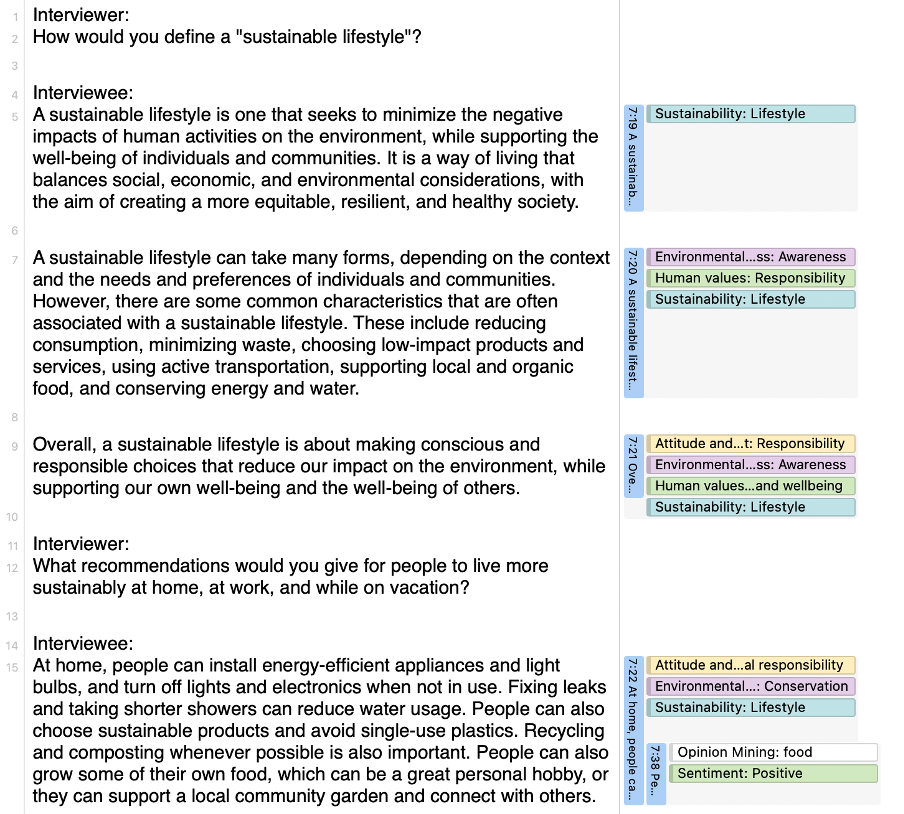Mastering Deductive Reasoning in Qualitative Research
Introduction.
Deductive reasoning is a fundamental aspect of qualitative research that serves as a guiding light in the quest to understand complex phenomena. It’s a structured approach that involves starting with a theory or hypothesis and then systematically collecting and analyzing data to test or confirm that theory. In the realm of qualitative research, this method enables researchers to explore existing knowledge and apply it to specific cases, helping to derive valuable insights. To truly master the art of deductive reasoning in qualitative research, one must understand its principles, techniques, and applications. In this article, we’ll delve into the world of deductive reasoning and explore its significance in qualitative research.

The Basics of Deductive Reasoning
Deductive reasoning operates on the premise that if a theory is true and relevant to a specific context, then certain observations or data points should support it. In qualitative research, this begins with the formulation of a clear and testable hypothesis. Researchers then gather data that is relevant to the hypothesis and analyze it systematically to draw conclusions. The process generally follows these steps:
- Develop a Clear Hypothesis: Deductive reasoning starts with a well-defined hypothesis or theory. This hypothesis serves as the foundation for the research and sets the direction for data collection and analysis.
- Collect Relevant Data : Researchers collect data through various methods, such as interviews, surveys, observations, or document analysis. The data collected should directly relate to the hypothesis or theory under investigation.
- Analyze the Data: The collected data is analyzed using appropriate qualitative research methods, such as thematic analysis, content analysis, or grounded theory. Researchers look for patterns, themes, or relationships that either support or refute the hypothesis.
- Draw Conclusions: Based on the analysis, researchers draw conclusions about the hypothesis. If the data supports the hypothesis, it is considered confirmed. If not, researchers may need to modify the hypothesis or explore alternative explanations.
- Refine and Iterate: Deductive reasoning often involves an iterative process. Researchers refine their hypothesis and repeat the data collection and analysis until they achieve a satisfactory level of confirmation or understanding.
Applications in Qualitative Research
Deductive reasoning finds numerous applications in qualitative research across various disciplines, including sociology, psychology, anthropology, and education. Here are some key applications:
- Theory Testing: Qualitative researchers often use deductive reasoning to test existing theories or concepts in real-world contexts. By applying established theories to specific cases, researchers can assess their validity and relevance.
- Hypothesis Confirmation: Deductive reasoning allows researchers to confirm or reject hypotheses based on empirical evidence. This helps in advancing knowledge and theory development.
- Comparative Analysis: Researchers can use deductive reasoning to compare and contrast findings across different cases or contexts. This approach enables a deeper understanding of the factors influencing a phenomenon.
- Policy Evaluation: In fields like public policy and social sciences, deductive reasoning can be applied to evaluate the effectiveness of policies or interventions by comparing them to established theories or expectations.
- Conceptual Frameworks: Deductive reasoning aids in the development of conceptual frameworks that guide qualitative research projects. These frameworks help structure the research process and ensure that data collection and analysis align with the research goals.
Resources for Further Learning
To truly master deductive reasoning in qualitative research, it’s essential to delve deeper into the methodology and practice. If you’re looking for comprehensive guidance and practical tips, consider visiting the dedicated resource on deductive reasoning in qualitative research at https://atlasti.com/guides/qualitative-research-guide-part-2/deductive-reasoning .
Deductive reasoning is a powerful tool in the qualitative researcher’s arsenal. It allows researchers to apply existing theories and concepts to real-world situations, facilitating a deeper understanding of complex phenomena. By following a structured process of hypothesis formulation, data collection, analysis, and conclusion drawing, qualitative researchers can harness the full potential of deductive reasoning. Whether you are a seasoned researcher or just starting your journey in qualitative research, mastering deductive reasoning will undoubtedly enhance the depth and quality of your research endeavors.
Extract Insights from Qualitative Data. In minutes.
Deductive approach in qualitative research: a complete overview.
Home » Deductive Approach in Qualitative Research: A Complete Overview
Structured Qualitative Analysis serves as a vital tool in deductive research, allowing researchers to systematically explore pre-defined theories and frameworks. By employing this method, analysts can succinctly distill complex qualitative data into meaningful themes, facilitating deeper insights. In this approach, researchers often begin with specific hypotheses or guiding questions, shaping their analysis as they test established concepts against new data.
This structured approach supports clarity and rigor in qualitative research, making it easier to present findings in a coherent manner. Analysts can effectively organize data from various sources, such as interviews and focus groups, ensuring that relevant insights are captured. Overall, Structured Qualitative Analysis enhances the integrity of deductive research, promoting a thorough understanding of the phenomena being studied.
The Framework of Structured Qualitative Analysis
Structured Qualitative Analysis serves as a vital framework for comprehending complex qualitative data. At its core, this method emphasizes systematic examination and categorization of qualitative information to draw meaningful conclusions. Researchers utilize this approach to ensure consistent and replicable results, essential for the deductive analysis process.
Key components of this framework include establishing clear research objectives, selecting appropriate data collection methods, and employing rigorous coding strategies. To thoroughly explore the data, researchers often engage in thematic analysis, where they identify recurring themes and patterns that align with their hypotheses. By integrating these components, Structured Qualitative Analysis enhances the reliability of findings and enriches understanding of human experiences. This framework ultimately empowers researchers to translate participant insights into actionable conclusions that inform decision-making processes.
Understanding the Deductive Approach
The deductive approach is a systematic method used in qualitative research to derive specific conclusions from broader general principles. At its core, this method begins with a theoretical framework or hypothesis and seeks to identify specific observations that confirm or refute that framework. Researchers employing this approach engage in structured qualitative analysis to ensure that their findings are rooted in a solid foundation, providing a clear path from theory to practice.
Understanding the deductive approach involves recognizing its reliance on existing theories and logic. Unlike inductive reasoning, which builds theories based on observations, deductive reasoning tests theories against gathered data. This method is particularly effective in exploratory studies where predetermined categories guide data collection, ensuring a focused examination of relevant data. Overall, the deductive approach enhances the rigor of qualitative research, fostering a clear connection between theory and empirical evidence.
Benefits of Structured Qualitative Analysis in Deductive Research
Structured Qualitative Analysis offers significant benefits in deductive research. It provides a clear framework that enables researchers to systematically explore and validate hypotheses. By guiding the analytical process, this approach ensures that data is not only gathered purposefully but also interpreted meaningfully in relation to existing theories. This structured approach helps minimize ambiguity, leading to more reliable insights.
Additionally, using Structured Qualitative Analysis allows researchers to focus on key themes and patterns, making it easier to draw connections between data and theoretical constructs. This systematic alignment enhances the credibility of findings, as each insight is anchored in a solid framework. Ultimately, these benefits facilitate a more effective and efficient research process, empowering researchers to derive actionable conclusions that contribute to the broader body of knowledge. By employing a structured method, researchers can ensure their work stands on a foundation of rigor and relevance.
Application of Structured Qualitative Analysis in Practice
Structured Qualitative Analysis plays a pivotal role in addressing complex research questions within qualitative studies. By implementing predetermined coding frameworks, researchers can systematically categorize data from interviews, focus groups, or observations. This structure facilitates the effective organization of findings, promoting clarity and consistency in interpretations. As the data undergoes analysis, patterns and themes emerge, aiding researchers in forming actionable insights.
In practice, Structured Qualitative Analysis requires a series of steps for optimal application. First, researchers must develop a clear coding scheme based on theoretical frameworks or existing literature. Second, they should pilot the coding with a small data sample to refine categories before applying it to the full data set. Third, ongoing iterative analyses ensure that emerging insights remain aligned with the study's objectives. These steps contribute to a robust research design that not only enhances transparency in findings but also enables researchers to convert qualitative data into meaningful actions.
Developing Hypotheses and Theoretical Frameworks
In qualitative research, developing hypotheses and theoretical frameworks is a crucial step in guiding your investigation. A structured qualitative analysis begins with the formulation of clear and purposeful hypotheses based on existing literature and knowledge. These hypotheses help focus the research, directing attention to specific phenomena that require exploration. By articulating these hypotheses, researchers can create a meaningful connection between theory and practice, ensuring that their findings are relevant and actionable.
To effectively develop these frameworks, consider the following steps: First, identify current theories related to your topic of interest. Second, critically analyze these theories to uncover gaps or inconsistencies that warrant further exploration. Third, contextualize your hypotheses within the theoretical frameworks you’ve identified. This process aids in generating insights that can be systematically explored through structured qualitative analysis, enriching the overall understanding of the research topic. Through this iterative process, researchers maintain clarity and purpose, significantly enhancing the quality of their findings.
Methods and Techniques for Data Collection and Analysis
Structured Qualitative Analysis forms a backbone for data collection and analysis in a deductive qualitative research approach. This method involves systematically categorizing and interpreting data to reveal patterns and themes. Researchers often begin by establishing a clear framework or set of codes that guide the analysis process. This framework helps organize the data and facilitates meaningful comparisons across multiple sources.
Various techniques can enhance structured qualitative analysis. Transcription of audio or video data into a text format is one example, allowing for thorough examination of participants' responses. Implementing coding strategies enables researchers to identify recurring themes and patterns effectively. Regularly revisiting this coding framework can also improve the accuracy of interpretations. Using visual tools, such as matrices or charts, may further clarify the relationships between different pieces of information. Adopting these methods ultimately provides a more robust understanding of the research questions posed.
Conclusion: The Future of Deductive Research and Structured Qualitative Analysis
The future of deductive research within structured qualitative analysis appears promising. As researchers increasingly recognize the value of systematic frameworks, the clarity provided by structured methodologies will become crucial. This approach enhances the ability to draw meaningful conclusions from data, bridging the gap between theory and practical application.
Furthermore, embracing advancements in technology will enable a richer interpretation of qualitative insights. Automated tools can support the analysis process, improving efficiency and reducing biases. Ultimately, as structured qualitative analysis continues to evolve, researchers must remain adaptable to harness its full potential.
Turn video, audio & docs, into actionable insights —in minutes
On this Page

How to Apply Inductive Reasoning in Qualitative Research
You may also like, qualitative research process diagram: steps and insights.
Qualitative Visualization: Tools and Tips
Simple qualitative map: how to create one.
Unlock Insights from Interviews 10x faster
- See a Live demo
- Start Analyzing Free
Insight7 transforms interviews, call recordings, surveys, and reviews into actionable insights in minutes, not weeks. Quickly uncover pain points, themes, desires, trends, and sentiments from your files and documents..
Our CEO, Odun Odubanjo introduces new tools that simplify and enhance conversation analysis at scale. With Project Kits and a Visual Designer, Insight7 now makes it easier than ever to turn conversations into actionable insights and assets.

The Ultimate Guide to Qualitative Research - Part 2: Handling Qualitative Data

- Handling qualitative data
- Transcripts
- Field notes
- Survey data and responses
- Visual and audio data
- Data organization
- Data coding
- Coding frame
- Auto and smart coding
- Organizing codes
- Qualitative data analysis
- Content analysis
- Thematic analysis
- Thematic analysis vs. content analysis
- Narrative research
- Phenomenological research
- Discourse analysis
- Grounded theory
Deductive reasoning
Inductive reasoning.
- Introduction
Abductive reasoning
Inductive vs. deductive reasoning in research.
- Qualitative data interpretation
- Qualitative data analysis software
Inductive vs deductive reasoning
Inductive vs. deductive reasoning is a choice that researchers might have to make when analyzing their data . Both inductive and deductive reasoning allows researchers to come to a logical conclusion based on their data and the existing theory.
Let's look at the differences between the types of scientific reasoning and examine specific examples regarding how they are used for drawing conclusions. This will be useful in determining where your study falls in the deductive vs. inductive debate.
We'll also look briefly at abductive reasoning so you can decide if it is more useful for your research. Then we can examine how you can apply inductive reasoning and deductive reasoning to your analysis in ATLAS.ti.

Inductive analysis looks at observing patterns to arrive at a logical conclusion. Any analytical approach called induction starts with examining a body of data , with as few preconceived notions as possible, to try to reach conclusions based on the data.
By inductively identifying patterns in the data, researchers form a premise or a statement that applies to that specific set of data. As more data from other contexts or situations are incorporated into the researcher's analysis, the researcher can form what is called a major or general premise or a broader conclusion about the patterns observed. In contrast, a more focused conclusion regarding a particular context becomes what is known as a minor or specific premise.
In the social sciences, major or general premises contribute to theories about human behavior and cultural patterns.
Inductive reasoning examples
Let's look at a basic example of how inductive arguments are formed. Imagine that you are applying the inductive method to a basketball game you are watching for the first time. Inductive reasoning would be required in this situation since you don't have the prior knowledge or experience to make any sort of general statement about basketball.

If one knows nothing about basketball or sports, one possible inductive argument is that the players wearing shirts of the same color are on the same team working together. The general premise, at least for the moment, is that uniform colors are used to distinguish one team from another. The conclusion reached in this observation forms a working theory that can be applied to similar contexts.
Other simple examples of inductive reasoning
Other examples of inductive reasoning generating conclusions include:
- All cats have four legs and whiskers.
- All cars have doors and steering wheels.
- All pizza contains cheese and tomato sauce.
As obvious from examples such as these, the conclusions reached are based on observations of cats, cars, and pizza. Still, those observations may have not included exceptions (e.g., dessert pizza) to contradict the general premises generated. Qualitative research employs inductive methods iteratively to find those exceptions and further develop more universal observations and conclusions about the world.
Inductive reasoning looks to form a valid argument from the bottom up, while a top-down approach to looking at the world can be called deductive logic . Deductive arguments begin with applying an existing theoretical understanding of the phenomena of interest to examine it in a particular context (in the case of qualitative research) or develop a hypothesis and test it (in the case of quantitative research). Deduction starts with a first premise ("all players on the same basketball team wear the same-colored uniform") and applies it to a new context or set of data. What the researcher learns about the data is known as the second premise. Finally, the researcher compares the two premises to arrive at an inference or conclusion that either affirms the first premise or warrants the development of existing theory or creation of new theory.
The main difference between inductive and deductive reasoning is that deductive reasoning relies on existing knowledge independent of new data .
Deductive reasoning examples
Continuing the example from our discussion of inductive reasoning, imagine that you are watching another basketball game, this time in a more casual setting where players don't wear uniforms. However, one set of players is wearing shirts while the other players are not. The specific conclusions about the same color uniforms are tested here but ultimately conflict with the new data.
Among other examples of deductive reasoning , imagine another simple example where you are conducting specific observations where birds lay eggs. Using previous knowledge and experience to build your premise, you are likely to conclude that the eggs will eventually hatch birds. The inference or educated guess you make about what happens to the eggs is thus tested by the actual outcome of the eggs you are observing.

ATLAS.ti makes complicated data analysis easier
Download a free trial of ATLAS.ti to see what you can do with your research data.
A third type of reasoning is called abduction , which relies on making an educated guess to explain what you are observing. This educated guess can stem from previous theory or experience. For example, think about how Sherlock Holmes or other famous detectives employ abductive reasoning to rule out impossible or improbable events.
A quick example of abduction
Imagine that you see the floor is wet near your kitchen sink. You examine the sink, but you find no visible signs of any leaking pipes or faucets. You also notice that the window above the sink is open, and you know that it rained earlier in the day. Without having actually seen the rain come through the window, you can still make an educated guess that the rainwater came in through the open window and left the wet spot on the floor. In other words, you constructed a plausible explanation based on the observed evidence and your previous knowledge or experience. Your explanation can then be confirmed or refuted through additional investigation or data collection .
Even if such a conclusion is not explicitly stated in the data, abduction allows you to form the kind of argument that induction or deduction might not be able to generate by building an argument from existing theory or knowledge.
The reasoning strategy you employ affects all stages of the research process. Qualitative research involves the researcher directly collecting data based on what they see and sense. The reasoning that you employ will influence how you analyze and make sense of your data.

For example, suppose you are conducting fieldwork with a deductive approach and are examining the effects of waterfalls on local agriculture. In that case, your research question might compel you to collect data primarily about the waterfalls in the area to guide your research toward a specific conclusion.
On the other hand, data analysis based on induction might observe a relationship between plant growth and sources of water, guiding additional data collection toward waterfalls and other sources of water. The main idea is that data collection cannot capture all possible phenomena; the reasoning employed by the researcher will determine how the phenomenon is analyzed, which can also inform subsequent data collection and theory development.
Whether your data analysis strategy follows inductive logic or deductive logic, ATLAS.ti can help you apply your reasoning to your research data through the data analysis process.
At the core of qualitative data analysis is coding , which collects segments of information together so that they are easier to understand. These codes, when organized in a hierarchy, can help you work inductively or deductively and visualize a working theory based on the data and existing knowledge.

Use ATLAS.ti for inductive and deductive reasoning
Analyze data inductively or deductively with a free trial of our software.

IMAGES
COMMENTS
Study with Quizlet and memorize flashcards containing terms like T or F: In qualitative methods, researchers learn by observing as they participate in a natural setting?, T or F: Intensive Interviewing tends to contain highly structured questioning., T or F: Qualitative Research usually uses deductive reasoning. and more.
Oct 16, 2020 · Deductive and inductive approaches to qualitative data analysis. In C. Vanover, P. Mihas, & J. Saldaña (Eds.), Analyzing and interpreting qualitative data: After the interview (pp. 133-146). SAGE Publications. Deductive Analysis. Deductive, or a priori, analysis generally means applying theory to the data to test the theory. It’s a kind of ...
Mar 28, 2024 · Qualitative research is often equated with an inductive, bottom-up approach to data analysis (Gilgun, 2005, 2019).However, over the last few decades multiple authors have addressed the utility of deductive approaches to qualitative research, in light of the generative and sensitizing role theory can play (Bingham & Witkowsky, 2021; Bitekine, 2008; Crabtree & Miller, 1999; Fereday & Muir ...
Study with Quizlet and memorize flashcards containing terms like In qualitative methods, researchers learn by observing as they participate in a natural setting, Intensive interviewing tends to contain highly structured questioning, Qualitative research usually uses deductive reasoning and more.
Sep 13, 2023 · Deductive reasoning is a fundamental aspect of qualitative research that serves as a guiding light in the quest to understand complex phenomena. It’s a structured approach that involves starting with a theory or hypothesis and then systematically collecting and analyzing data to test or confirm that theory.
Oct 25, 2024 · The deductive approach is a systematic method used in qualitative research to derive specific conclusions from broader general principles. At its core, this method begins with a theoretical framework or hypothesis and seeks to identify specific observations that confirm or refute that framework.
Aug 27, 2021 · Many qualitative researchers use the words “themes” and “findings” interchangeably, which works for them. For me, I like to differentiate. My themes are usually words or phrases, and I develop my findings from those themes, by condensing and rewording the themes into short phrases that clearly answer the research questions.
Mar 28, 2024 · Although qualitative research is often equated with inductive analysis, researchers may also use deductive qualitative approaches for certain types of research questions and purposes. Deductive ...
The degree of theoretical coherence in the context you want to study will largely determine whether deductive reasoning or inductive reasoning is more appropriate for your research. You should consider incorporating deductive reasoning in your study design if previous researchers have already provided a relevant theory for your inquiry and your ...
Inductive vs. deductive reasoning in research. The reasoning strategy you employ affects all stages of the research process. Qualitative research involves the researcher directly collecting data based on what they see and sense. The reasoning that you employ will influence how you analyze and make sense of your data.